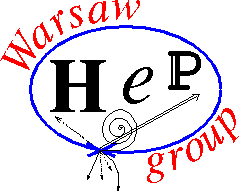SEMINARIUM FIZYKI WIELKICH ENERGII
Dnia 1 kwietnia (piątek) o godzinie 10:15, w sali B2.38 odbędzie się
seminarium, na którym zostanie wygłoszony referat pt.:
„Development of nuclear reactors – 4th generation reactors, SMRs and others. Nuclear options for the Polish energy transformation”
Referuje: Prof. Wacław Gudowski
Abstract:
Almost 21 years have passed since Gen IV – Generation IV International Forum (GIF) has been founded in 2001 as a co-operative international endeavour which was set up to carry out the research and development needed to establish the feasibility and performance capabilities of the next, advanced generation of nuclear energy systems.
The program, organizational structure and main achievements and weaknesses of GIF will be presented in the first part of the seminar. Then other modern reactor types not officially belonging to the Gen IV will be presented and briefly assessed. The focus of the presentation will then shift to the description and assessment of the high temperature gas cooled reactor – HTGR/HTR and its nuclear fuel – TRISO.
The various options for solving the problem of USED rather than SPENT nuclear fuel will be briefly described and assessed, including ADS technology, i.e. accelerator-driven subcritical systems.
Finally, possible options for nuclear energy for heat and electricity generation in the Polish energysystem transformation program will be presented. Is there any BEST OPTION?
A Q & A session will follow the seminar.
Serdecznie zapraszamy
dr hab. Katarzyna Grzelak
prof. dr hab. Jan Królikowski
prof. dr hab. Aleksander Filip Żarnecki

